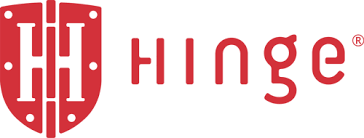3 Ways Strong Employer Branding Helps Your Firm
By Elizabeth Harr, Partner, Hinge | June 19, 2019
If you are a government contractor, you already know that few things present a greater challenge than finding and retaining qualified talent. In the Washington, D.C. govcon marketplace alone, many hundreds of government contracting firms compete for a finite pool of talented professionals to join their teams.
For those firms willing to take a more strategic approach to the war on talent however, a powerful option is available: creating and implementing an employer branding plan.
Defining Terms
What is employer branding, anyway? The concept is actually simple: it’s essentially your firm’s reputation as a workplace. Is your firm seen as a pressure cooker, or does it place more value on work-life balance for its employees? Is it known for having genuine experts on staff? And do people see it as a good place to acquire new skills and build their careers? Your reputation is comprised of a wide variety of such factors and characteristics.
Similar to any other brand, your employer brand is only as powerful as it is visible. If your work environment is great, but no one knows about it, top talent will not be lining up for interviews. By building up both parts of your employer brand — reputation and visibility — you can help talent regard your firm as both findable and appealing.
In short, an employer branding plan is your roadmap to improving your reputation as a place to work, and visibility around that reputation. In one of my future posts, I’ll discuss how to develop such a plan. Today, however, I’ll focus on three reasons you need one in the first place.
1. Make Recruiting Easier
Having a strong employer brand, by definition, improves the quality and quantity of one’s applicants. When your firm’s culture and benefits are well known in the industry, you will naturally attract a larger pool of applicants — and more of those who apply should be premium talent.
But that’s just the beginning of the advantages that employer branding provides. A strong employer brand increases the likelihood that you’ll be a candidate’s first choice, and aids in hiring good people faster, including people with special skills. In certain cases, a strong employer brand may even give you leverage in negotiating better terms.
Simply put, investing in employer branding reduces the cost of acquiring talent. Improved marketplace visibility means you may be able to decrease your dependence on recruiting agencies, since more candidates will seek out your firm directly.
2. Keep Employees Longer
I’m sure you already know how costly it is to acquire and train new employees — and you can probably imagine how much better off your firm would be if you could retain your best professionals for longer periods.
When you have a strong employer brand — especially in terms of quality of life factors such as culture, leadership style, and growth potential — you will reduce the temptation of employees to jump ship. When employees feel good about their workplace, they’ll be less likely to be lured away by simply a bigger paycheck. Money is only one of the factors that employees consider, and surprisingly, it’s not necessarily the most important to them. After all, when people are highly satisfied in their jobs, the thought of moving to a competitor presents significant risks. Truly contented employees know that in some cases, money just buys unhappiness.
3. Put Your Culture Front and Center
Your firm’s culture is arguably the most important aspect of your employer brand. What is it like to work there? How does the firm treat employees? Are your people respectful and collaborative co-workers? Does the firm value high-quality work? Do you offer opportunities for employees to interact socially? Can employees expect ongoing training and professional development?
Among government contractors, developing a coherent culture can present a significant challenge — and this is even more true at 1099-driven firms or in firms where your FTEs spend most of their time outside your office.
Fortunately, it can be done. Employees who in the past have felt exploited by indifferent govcon employers know only too well the value of a strong culture. Firms that effectively create and sustain a culture that fills the needs of their employees — on both an emotional and practical level — will have a powerful advantage in recruiting. Focused effort on employer branding forces and equally focused effort on culture.
Make Employer Branding Part of Your Strategy
If you’re thinking that employer branding sounds appealing, you are not alone. A recent recruiting industry survey found that 41% of companies already have formal employer branding programs, and among companies with more than 1,000 employees, that figure is closer to 50%. Moreover, among these businesses, 94% plan to either maintain or boost their investment.
Here’s the bottom line: an employer brand strategy gives you a tremendous advantage over competitors who lack such a strategy. In fact, many firms report that their employer brand investments have a direct effect on their revenues.
So how is your firm investing in its employer brand to attract and keep its top talent?
About the Author
Elizabeth Harr, Partner at Hinge, is an accomplished entrepreneur and experienced executive with a background in strategic planning, branding and growth for professional services. Elizabeth co-founded a Microsoft solutions provider company and grew it into a thriving organization that became known for its expertise in Microsoft customer relationship management. In her role as Partner at Hinge, she leads the advisory provided to technology consulting and government services firms.
